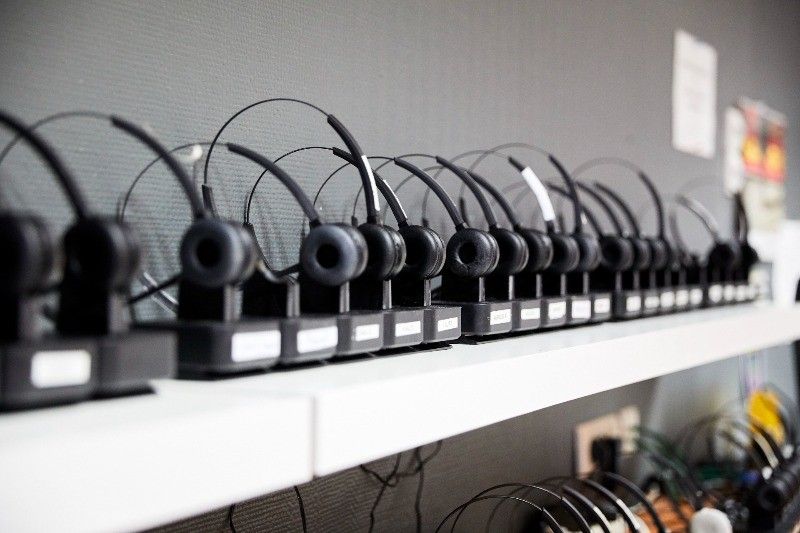PEZA, call centers pin hopes on next president to make 'hybrid' work permanent

MANILA, Philippines — The country’s largest economic zone is retreating in its fight to have work-from-home arrangements extended for call center employees in its geographical boundaries, and is leaving the fate of a proposed “hybrid” setup in the hands of the next president.
Starting April 1, Information Technology Business Process Management (IT-BPM) firms registered with the Philippine Economic and Zone Authority (PEZA) will resume their “regular” setup requiring 70% of total workforce to report to the office, while the remaining 30% can work remotely anywhere.
This would mark the end of a reprieve that the government extended to IT-BPM companies operating in the country’s ecozones, which grant tax incentives to locators. At the onset of the pandemic in 2020, these companies were allowed to implement remote work for 90% of their employees without losing their precious tax breaks in a bid to minimize disruptions caused by hard lockdowns.
PEZA Director-General Charito Plaza said IT-BPM companies that would defy the government order will lose their fiscal perks. She added that PEZA and the IT & Business Process Association of the Philippines (IBPAP), the umbrella organization of IT-BPM companies in the country, are pinning their hopes on the next administration to make permanent their proposed “hybrid” arrangement that combines onsite and remote work setups.
“The hybrid request of the IBPAP can be introduced by the new administration in order to institutionalize the work scheme and corresponding ratio,” Plaza said in a Viber message.
At a meeting last February 21, the Fiscal Incentives Review Board (FIRB), which is in charge of policy making and overseeing the administration and grant of tax incentives, rejected the appeal of PEZA and IBPAP to extend the work-from-home scheme for call center workers until September this year.
This, despite renewed pleas from IT-BPM workers who are worried about rising transport costs amid a sustained rise in oil prices.
Explaining the government’s decision, Finance Secretary and FIRB Chair Carlos Dominguez III argued that the work-from-home setup “is only a time-bound temporary measure adopted during the surge of the Covid-19 pandemic.”
Dominguez also said prolonging the relief given to IT-BPM firms would be “unfair to other companies outside ecozones that are paying regular taxes.”
“IT-BPM companies in ecozones are allowed to adopt WFH arrangements,” he said. “No one is prohibiting them or impinging on their management prerogative to continue implementing their WFH setups. However, they must give up the tax incentives they currently enjoy because the law is clear on this.”
- Latest
- Trending



























